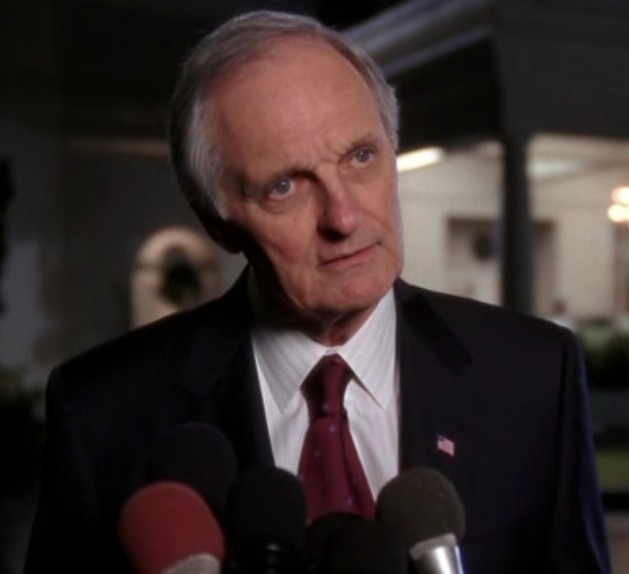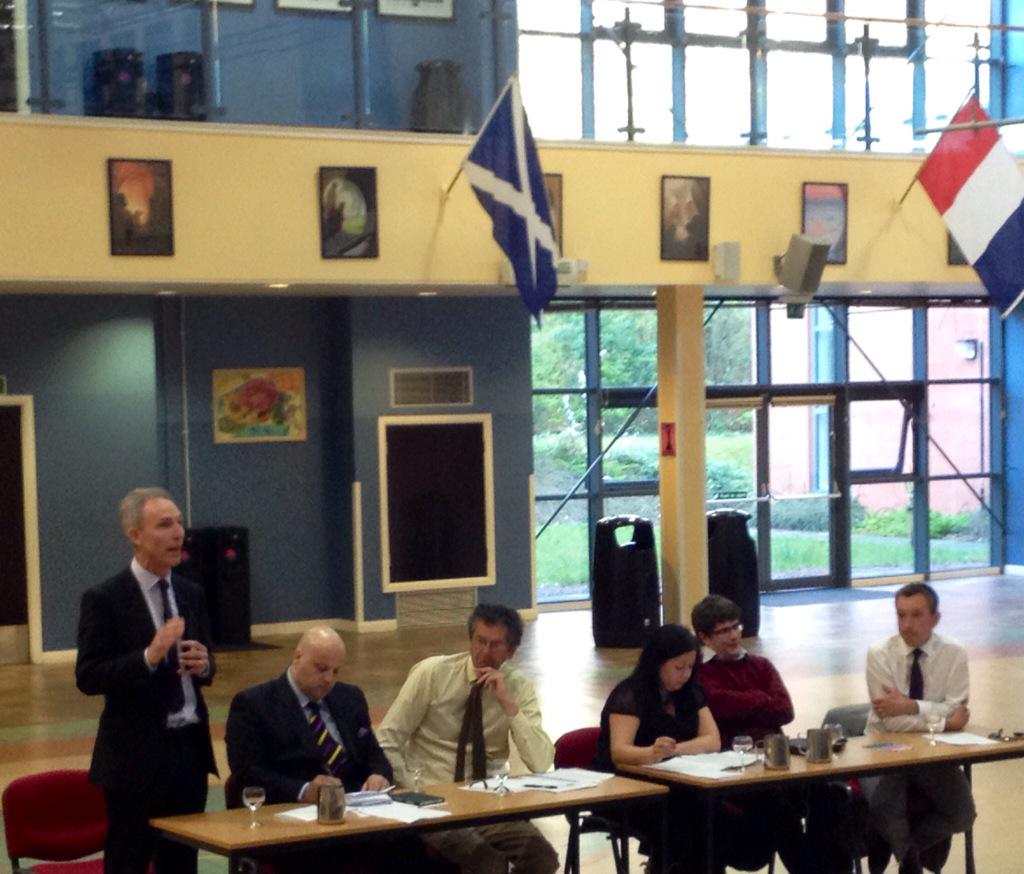The Scotland Act 2012 changed the nature of the tax raising powers enjoyed by Holyrood. When the Parliament was first created, it had the power to vary the basic rate of income tax by up to 3 percentage points either side of any rate that the Chancellor of the Exchequer set for the UK as a whole. If Holyrood cut the basic rate, it would receive a smaller block grant, and if it raised the basic rate, it would receive a larger block grant.
One of the main criticisms of this power was that it did not allow the Scottish Parliament effectively to spread any tax increase completely progressively across the income spectrum. Although the existence of the personal allowance meant that those on higher incomes would see a greater impact on their tax bill than the least well-off, the distributional impact was fairly flat, and a rise would, in percentage terms, mostly hit the professional middle class earning about £30-40k in today's money. The inability to alter the higher rate of income tax, which was responsible for a much larger share of high-earners' tax bill, meant that an increase in the basic rate would be regressive beyond that income bracket.
If, for example, that old power still existed, and the Scottish Government decided that, from 2016-17, it wanted to raise the basic rate of income tax by one percentage point, this is how it would affect Scottish taxpayers:
As you can see, the mildly progressive nature of that tax power quickly tails-off once taxpayers start paying the higher rate of tax instead. The maximum increase in someone's liability under the power is capped at £957, and that would require the full 3% increase to be introduced.
Impact of the Scotland Act 2012:
However, the original Scottish Variable Rate was never used, and fell into disuse before being replaced with a new power. Under the Calman Commission proposals, the Scottish rate of income tax was introduced. Under this arrangement, the Chancellor of the Exchequer levies a basic, higher and additional rate that is 10 percentage points lower for Scotland than for the rest of the UK. There is a corresponding cut to the block grant. The Scottish Government must then decide to what extent it wishes to "fill the gap" or even go beyond it.
There is a constraint to this power, which is that the Scottish rate of income tax must be the same across all income brackets. If you want to raise one tax rate, you must raise them all, and by the same percentage point increase. If the Scottish Government levies an SRIT of 10p, the rates in Scotland will be the same as those in the rest of the United Kingdom. If the Scottish Government wanted to increase the rate of income tax by 1%, they would levy an 11% SRIT. The effective tax rates in Scotland would then be 21%, 41% and 46%. Using the same scenario as before, the effect of this would be as follows:
The key difference from a distribution perspective, therefore, is that the Calman power removes the upper-ceiling on the additional liability that the Scottish Government can impose on the higher paid. This has the effect of making an increase in the SRIT modestly progressive across the board. Indeed, for someone earning around the minimum wage (£14kpa) would see their tax bill rise from 4.57% to 4.80% of their gross income, an increase of £32. This is in contrast to someone earning £60kpa, who would see a rise from 22.17% to 22.99% of their gross income being taken in income tax, an increase of £492. Put another way, such a rise would cut the take-home pay of someone on the minimum wage by £2.67 a month and someone on £60k by £41 per month.
What John Swinney said:
In his draft budget speech before Holyrood today, John Swinney said (emphasis added):
"Presiding Officer, today’s Draft Budget marks the first time that a Scottish Government will propose a Scottish Rate of Income Tax.
From April 2016, the UK Government will reduce the block grant by £4.9 billion with the partial devolution of income tax powers and at the same time switch-off 10 pence of income tax in Scotland.
I am required now to set a rate in Scotland.
The current power allows for one single rate to be set here in Scotland and applied equally to all three income tax bands – the basic, higher and additional rates.
This means that any rate set above 10 pence would increase the tax paid by all Scottish taxpayers. By its nature, exercising this power would have a disproportionate effect on the amount of tax paid by those on the lowest incomes.
Likewise, whilst any rate below 10 pence would cut the tax bill paid by all taxpayers, those on the highest incomes would see the greatest benefit."
This is nonsense:
Taken with the analysis above, the claims about "proportionality" in this statement simply do not stand. Indeed, it is internally inconsistent. The lock-step nature of the power means that only one of two things can be true. Either:
(a) All rates above 10p disproportionately increase the liability of the better off and all rates below 10p disproportionately decrease the liability of the better off; or
(b) All rates above 10p disproportionately increase the liability of the worst off and all rates below 10p disproportionately decrease the liability of the worst off.
Indeed, the empirical evidence above suggests that (a) is true and (b) is untrue. His justification for not increasing income tax is mutually inconsistent with his justification for not cutting it. In both cash and percentage terms, an increase in income tax in Scotland would place a burden predominantly on higher, not lower, earners.
If you were to be charitable, you could say that the proposed tax powers in the Scotland Bill would allow John Swinney to raise the taxes of the richest while either keeping the taxes of the poorest static or even to cut them. Under those proposals, the lock-step is being removed, which would allow the Scottish Government to raise the higher and/or additional rate without touching the base rate. But that doesn't stop John Swinney being more progressive now with the power he has; it simply means he can be more progressive later than he could just now. The notion that you should eschew progressive politics until you're given the power to be perfectly progressive is frankly abdication of governmental responsibility.
It should also be remembered that the Calman power will only be in place for 2 years. For the sake of 2 years, a 1% increase in the base rate would mean asking the poorest of Scots to pay the equivalent of a second class stamp every week more towards public services. For middle-income Scots you'd be asking less than the cost of their TV licence. For high-earning Scots, you'd be asking for the equivalent of a mobile phone contract or a satellite TV subscription, to fund public services. After that 2 years, you could cut or reverse the increase to basic rate payers. The rise in the personal allowance to £11k in 2017-18 would actually wipe-out any increased burden faced by minimum wage-earners in the second year of such a policy anyway.
The purpose of this is not to say that the SNP should raise this tax. It is to illustrate the absurdity of Swinney's stated justification against it. It is not credible to claim that "exercising this power would have a disproportionate effect on the amount of tax paid by those on the lowest incomes".
If John Swinney is to justify a government position which is anti-austerity: which thinks that the current level of resources made available to government programmes is not adequate, he needs a better explanation for why he has consciously not asked high-earning Scots to undertake a greater share of that burden. Raising the taxes of people on low and middle-incomes may not be popular, but as part of this specific tax power, it is both progressive and would raise the additional revenue he says Scotland badly needs. There are perfectly good, cogent, reasons for not wanting to raise personal income taxes, but he isn't offering them. The only logical conclusion we can draw is that John Swinney thinks it is more important that money stay in people's pockets, including Scotland's richest 10% of earners, than that the austerity "funding gap" be filled.
This is many things, but more progressive than the British consensus? It ain't. This stance is more at home with David Cameron and George Osborne than it is with Jeremy Corbyn or John McDonnell. That might be no bad thing, but let's at least level with the Scottish public that this is the reality we inhabit. The SNP are not a centre-left party on tax.
UPDATE: 23:06pm 16.12.15
I have decided to add a few graphs to display visually the impact of setting the SRIT at 11p instead of 10p. The wider the gap between the red line and the blue line, the greater the impact of the tax change on that particular group. As you can see, in both absolute and percentage terms, the 11p rate, proportionally speaking, hits those on higher incomes more. I have included a white line to indicate the national median wage: to the left of this line is the impact of the lowest 50% of earners in Scotland. As you can see, the gap is almost non-existent in all graphs for the lowest of earners, and is widest for higher earners. This indicates that an 11p rate would be a progressive step on the status quo. Unless John Swinney is arguing the more "right-wing" case that the problem is an 11p rate will raise no money, or lose money to the Scottish budget, and therefore necessitate a reduction in public service provision, there is no principled case against his introducing it.



















